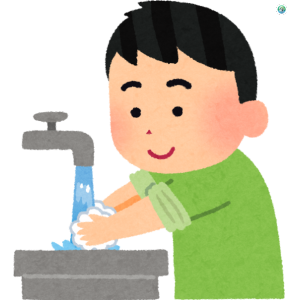
Dr Sathiya Ganesan’s
Helping Young Minds Break Free from Unwanted Thoughts and Repetitive Behaviours.
Intrusive thoughts and repetitive behaviors can trap a child in cycles of distress, fear, and guilt. Obsessive-Compulsive and Related Disorders (OCRDs) often go undetected in young people, yet they can deeply affect development, school performance, and emotional wellbeing.
Dr. Sathiya Ganesan, Consultant Psychiatrist in Child and Adolescent Mental Health, offers specialized treatment for OCD and related disorders — helping children break free from compulsions and rediscover calm, confidence, and control.
Understanding Obsessive-Compulsive and Related Disorders
When Thoughts Take Over – Reclaiming Control from OCD

Obsessive-Compulsive Disorder (OCD) is a condition where children experience unwanted, distressing thoughts (obsessions) and feel compelled to perform certain behaviours (compulsions) to reduce their anxiety. Related disorders may include hair-pulling, skin-picking, or body-focused repetitive behaviors.
Common OCRDs in children and teens include:
- Obsessive-Compulsive Disorder (OCD)
- Body Dysmorphic Disorder (BDD)
- Trichotillomania (Hair-Pulling Disorder)
- Excoriation Disorder (Skin-Picking)
- Hoarding Disorder (rare in children, more common in teens)
These conditions are not habits or defiance — they are mental health disorders that can be treated successfully with the right approach.
Common Signs of OCD and Related Disorders in Children
Symptoms can vary by age but often include:
- Repeating actions like hand washing, checking, or counting
- Needing things to feel “just right” or arranged a certain way
- Fear of germs, illness, or harm coming to loved ones
- Intrusive thoughts the child finds scary or upsetting
- Confessing or seeking reassurance excessively
- Skin picking, nail biting, or hair pulling when anxious
- Taking a long time to get ready due to rituals
- Academic or social withdrawal due to obsessive thoughts
If these behaviours persist and interfere with daily functioning, an expert evaluation is essential.
Developmentally Sensitive Assessment & Diagnosis
Dr. Ganesan conducts a child-friendly, age-appropriate assessment that includes:
- Detailed interviews with the child and caregivers
- Observation of compulsive behaviors
- Anxiety screening and rule-out of other disorders
- Coordination with teachers if behaviors occur at school
The evaluation helps clarify whether the symptoms are part of normal development, anxiety, or a diagnosable OCD-related condition.
Structured Treatment Planning and Behavior Management
Every treatment plan is tailored based on the child’s age, the severity of symptoms, and family environment. Goals include:
- Reducing distress from obsessive thoughts
- Decreasing the urge to perform rituals or repetitive acts
- Helping children tolerate uncertainty
- Rebuilding confidence and social functioning
Treatment involves breaking the cycle of obsessions and compulsions while ensuring the child feels safe and supported throughout.
Cognitive Behavioral Therapy (CBT) with Exposure and Response Prevention (ERP)
ERP is the gold standard for OCD treatment. Dr. Ganesan uses:
- CBT with ERP: helping children face fears gradually and resist compulsions
- Play-based CBT for younger children
- Visual aids, stories, or metaphors to explain OCD in simple language
- Reward-based progress charts to motivate engagement
ERP helps children retrain their brains to reduce anxiety without rituals.
Medication Support (When Needed)
In moderate to severe cases, Dr. Ganesan may recommend SSRIs (Selective Serotonin Reuptake Inhibitors) to support therapy. Medications are started only after thorough discussion with parents and are used alongside ERP, never as a standalone treatment. Safety, tolerability, and gradual improvement are closely monitored.
Parent Training and Family Support
Parents play a key role in supporting recovery. Dr. Ganesan works with families to:
- Understand how OCD works and how to respond calmly
- Avoid accommodating rituals (which can worsen symptoms)
- Create structure and predictability at home
- Celebrate progress without pressure
Empowering families improves outcomes and reduces relapses.
School Support and Social Integration
When OCD affects school life, Dr. Ganesan coordinates with educators (with parental consent) to:
- Adjust academic expectations
- Reduce triggers or stressful classroom scenarios
- Support reintegration for children avoiding school due to rituals or shame
Open communication helps children feel safer in both learning and social environments.
Online Consultations for Ongoing OCD Support
Dr. Sathiya Ganesan offers secure virtual sessions for:
- Continued therapy
- Medication reviews
- Parenting guidance and progress monitoring
This ensures consistent care even during school schedules, travel, or emergencies.

Why Choose Dr. Sathiya Ganesan for OCD & Compulsive Disorders?
With years of experience in Child and Adolescent Psychiatry, Dr. Sathiya Ganesan offers a calm, structured, and empowering environment where children learn to overcome intrusive thoughts and gain control over compulsions.
She’s therapeutic approach combines clinical precision with emotional understanding, ensuring every child feels heard, supported, and capable of healing.
Help Your Child Break Free from the OCD Cycle
If your child is trapped in patterns of repeated thoughts or behaviours, help is available.
Contact Dr. Sathiya Ganesan today to start a personalised care plan that guides your child toward clarity, calm, and freedom.
What causes OCD in children?
OCD can be influenced by genetics, brain chemistry, personality traits, or past stressors. It’s not caused by parenting or personal weakness.
How do I know if my child’s behaviour is OCD or just a habit?
If behaviors are repetitive, cause distress, take up time, or are done to relieve fear or guilt, they may be signs of OCD. A psychiatric evaluation helps confirm this.
What is the best therapy for child OCD?
Cognitive Behavioral Therapy with Exposure and Response Prevention (ERP) is the gold standard. It helps children face fears gradually without performing rituals.
Can my child outgrow OCD?
Some children improve over time, but many need therapy to prevent OCD from becoming more severe or interfering with development. Early treatment is key.
Can OCD be treated online?
Yes, many children benefit from online CBT sessions with a trained child psychiatrist. Dr. Sathiya Ganesan offers secure online care for families needing flexibility.


